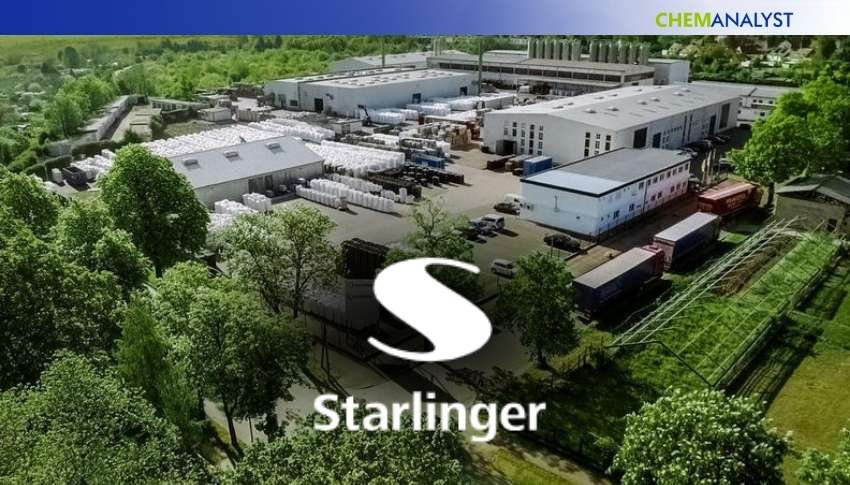Welcome To ChemAnalyst

Starlinger’s PET recycling system meets stringent EU food safety standards, enabling expanded licensing for high-purity food-grade recycled PET production.
Starlinger’s PET bottle-to-bottle Recycling System, Recostar Pet art, has received a positive scientific opinion from the European Food Safety Authority (EFSA), confirming its compliance with the stringent requirements of the updated EU Regulation 2022/1616. This regulatory green light is essential for the European Commission to authorise the recycling process for producing food-contact-safe PET. With this clearance, Starlinger can now offer licenses for its advanced recycling technology to PET recyclers across the EU.
The updated Regulation EU 2022/1616, which came into effect in 2022, replaces the earlier Regulation EU 282/2008. The revised framework introduces more rigorous safety standards, particularly concerning the acceptable residual levels of contaminants such as toluene, chlorobenzene, and methyl salicylate. In the revised assessment protocols, the acceptable thresholds for several substances have been reduced by as much as 50%, reflecting a greater emphasis on food safety and public health.
To verify the effectiveness of the decontamination process in Starlinger’s system, the EFSA Panel on Food Contact Materials conducted a detailed challenge test. PET flakes were deliberately contaminated with substances including toluene, chlorobenzene, methyl salicylate, phenylcyclohexane, benzophenone, and methyl stearate. These flakes were stored under simulated conditions — seven days at 50°C with periodic agitation — to simulate potential contamination scenarios.
The initial surface contaminants were rinsed using 10% ethanol at room temperature. Subsequently, the flakes were washed in a solution comprising 1% caustic soda and 0.3% detergent at 85°C for ten minutes, followed by drying. The concentration of surrogate contaminants was then measured to determine the system’s decontamination efficiency. Results revealed an impressive performance, with over 99.6% of toluene, 99.8% of Chlorobenzene, over 99.9% of methyl salicylate, 98.0% of phenylcyclohexane, 97.2% of benzophenone, and 97.7% of methyl stearate successfully removed.
Based on these results, EFSA confirmed that the estimated residual migration levels into food from the recycled PET remain well below the safety threshold of 0.0025 micrograms per kilogram of body weight per day — the level deemed negligible for human health risk. The EFSA panel concluded that materials manufactured using this recycled PET are safe for use in all types of Food Packaging, including drinking water containers, for long-term storage at room temperature or below. However, the materials are not approved for use in microwave or conventional ovens.
Starlinger first introduced the recoSTAR PET art system at the K 2022 trade fair, positioning it as the next-generation successor to its recoSTAR PET iV+ line. The new system delivers approximately 25% lower energy consumption per kilogram of output while boosting throughput by at least 15%. With processing capacities ranging from 1,000 kg/h to 3,200 kg/h, the machine is already making an impact. Currently, 18 recoSTAR PET art systems are operational across Europe, the Americas, Africa, India, and Southeast Asia, producing nearly 300,000 tons of food-grade PET annually. Globally, Starlinger customers supply about 2.5 million tons of such recycled PET each year, reinforcing the company's leadership in sustainable packaging solutions.
We use cookies to deliver the best possible experience on our website. To learn more, visit our Privacy Policy. By continuing to use this site or by closing this box, you consent to our use of cookies. More info.
